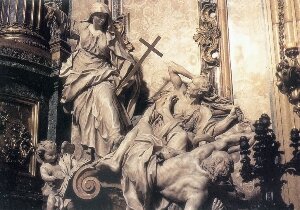Urgent concerns with the uniformity of belief and practice have characterized Christianity from the outset.
The process of establishing orthodox Christianity was set in full swing when Paul wrote the epistles that comprise a large part of the New Testament.
On many occasions in Paul's epistles, he defends his own apostleship, and urges Christians in various places to beware of false teachers, or of anything contrary to what was handed to them by him. The epistles of John and Jude also warn of false teachers or prophets, as does:
- Matthew (Matt 7:15;24:11;24:24),
- Mark (Mark 13:22),
- Luke (Luke 6:26),
- 1 John (1 John 4:1),
- 1 Timothy (1 Tim 1:3-4),
- 2 Peter (2 Pet 2:1)
- and Revelation (Rev 16:13;19:20;20:10)
In the middle of the 2nd century, three unorthodox groups of Christians adhered to a range of doctrines that divided the Christian communities of Rome: the teacher Marcion, the pentecostal outpourings of ecstatic Christian prophets of a continuing revelation, in a movement that was called "Montanism" because it had been initiated by Montanus and his female disciples, and the Gnostic teachings of Valentinus.
More...
 Walid Shoebat-Islam Prophesied In The Bible
Walid Shoebat-Islam Prophesied In The BiblePresented by: Chuck Missler and Koinonia Institute



No comments:
Post a Comment